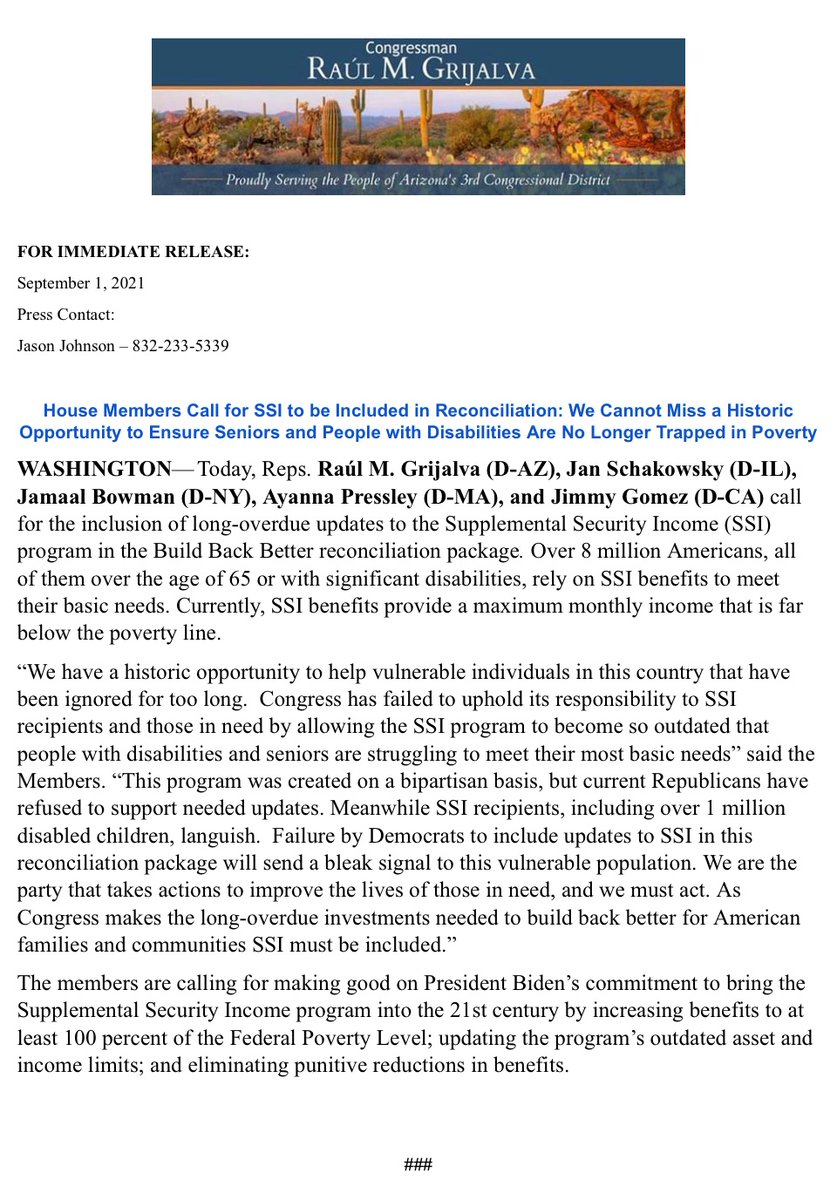
New year, new season of @offkiltershow!
I’m super excited to share a preview of what we’ve got lined up for the season ahead.
And to do that, I’m gonna get a little personal. . .
🧵
tcf.org/content/commen… 1/x
I’m super excited to share a preview of what we’ve got lined up for the season ahead.
And to do that, I’m gonna get a little personal. . .
🧵
tcf.org/content/commen… 1/x
With burnout spreading like wildfire throughout progressive advocacy circles even before the COVID-19 pandemic started nearly 3 years ago – I’ve been feeling called to take the pod in a bit of a different direction this season. 2/x
So starting with this week’s episode w/the brilliant @Aisha_Nyandoro, @OffKiltershow will be leaning into another dimension of "off-kilter" – by talking to social justice leaders about how they care for *themselves* while fighting for economic justice and liberation for all. 3/x
This other dimension of off-kilter resonates deeply with me on a personal level as someone who’s only recently begun moving past YEARS of functional burnout, after leading a deeply off-kilter life that, until fairly recently, was nearly entirely consumed and defined by work. 4/x
As a legal aid lawyer and public policy advocate fighting for economic justice, I've spent the better part of 2 decades believing exhaustion was a badge of honor. That lacking the bandwidth to show up for anything outside of work was a mark of my commitment to the cause. 5/x
Fast forward, and as someone who’d spent years living with chronic illness well before I hit working age, eventually my body gave out about a year before the COVID-19 pandemic. 6/x
I had no choice but to hit pause and start the process of getting in right relationship to the work that I love, but which I’d lost myself in service to. It was time to make some major shifts. 7/x
My story is sadly commonplace. As writers and activists like Audre Lorde, bell hooks, Gloria Anzaldua, and more recently Sonya Renee Taylor and Tricia Hersey have been uplifting for some time – social justice advocates have a long history of deprioritizing self-care. 8/x
Adding another layer, many of us (and many of the institutions we work in) have internalized the very social ills we’re trying to dismantle – including the toxic and oppressive underpinnings of white supremacy and capitalism run amok. 9/x
So the badge of honor becomes killing ourselves with work, working while sick, overextension to the max – all while we fight for public policies to protect our communities from precisely those types of toxicity and oppression. 10/x
As I invoke the names of visionary thinkers like Audre Lorde, it’s critical to note that while radical self-care, as it's come to be known, is a conversation started by women of color navigating life in a society rife w/ sexism, racism, homophobia + economic oppression. . . 11/x
. . . the concept of self-care has long since been commercialized and watered down. Case in point: You can’t spend 5 minutes on a social media platform these days without being marketed $150 face goop in the name of #SelfCareSunday. 12/x
**Side note: Here’s a great piece on reclaiming the true meaning of self-care, from @refinery29: refinery29.com/en-us/2021/05/… 13/x
Now, I'd be remiss if I didn't center a critical, if obvious caveat: self-care is not something that is equitably accessible in our society in all its various forms (and that's putting it charitably). 14/x
When I finally got COVID last fall, I felt my privilege in spades as I took paid sick time for the first time in my life (vs. once again working through serious illness), so I could get the rest I knew I needed to recover, as someone with pre-existing health conditions. 15/x
This came just weeks after my team at @tcfdotorg published a piece highlighting the research showing rest may be the best treatment for long COVID—but that America’s public policies fall pitifully short of ensuring that all people in this country have access to rest. 16/x
@offkiltershow started to scratch the surface of this conversation last fall when we ran a two-part series uplifting the toxicity of the notion that a human being’s worth comes from their work:
Part 1:
tcf.org/content/podcas…
Part 2:
tcf.org/content/podcas…
18/x
Part 1:
tcf.org/content/podcas…
Part 2:
tcf.org/content/podcas…
18/x
But here’s the thing: the toxicity of that belief doesn’t just lead to inhumane macro public policy consequences like America’s work-based safety net or an ableist economy that still isn’t built for disabled people; its poison is toxic at the micro level too. 19/x
So, for this next season of @offkiltershow, I’m incredibly excited to be sitting down with an amazing series of social justice leaders to dig into why self-care is indeed political warfare—and the role radical self-care plays to sustain them in this work. 20/x
And to help me kick this season off right, I sat down with my brilliant friend @Aisha_Nyandoro, of @SpringboardToOp and architect of the Magnolia Mother’s Trust.
🎧: bit.ly/off-kilter
tcf.org/content/podcas…
21/x
🎧: bit.ly/off-kilter
tcf.org/content/podcas…
21/x
@aisha_nyandoro's been on the pod several times talking about her work as a leader on guaranteed minimum income. But I LOVED getting to sit down w/ her to hear how she shows up for herself in this work, since she’s been a real inspiration to me personally on this front!!! 22/x
I'm incredibly excited about the lineup we have coming together for the season, but send your pitches to @offkiltershow or offkiltershow@tcf.org if there are folks you'd like to hear from on this front -- we're all ears!
*end rant, dismount from soapbox*
/end <3
*end rant, dismount from soapbox*
/end <3
• • •
Missing some Tweet in this thread? You can try to
force a refresh





